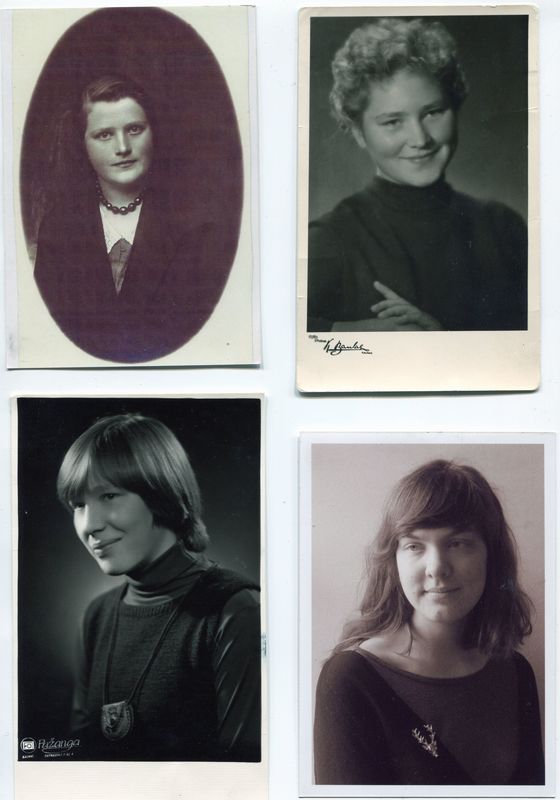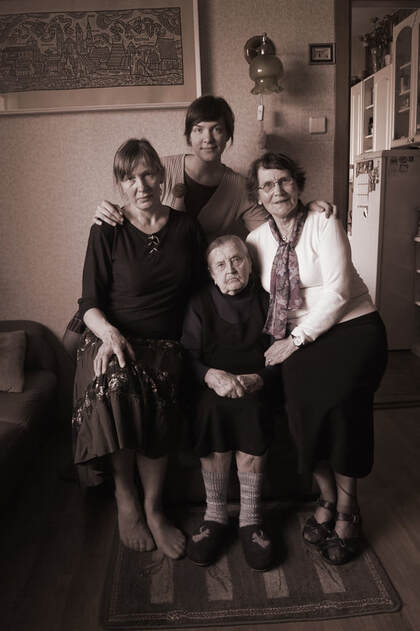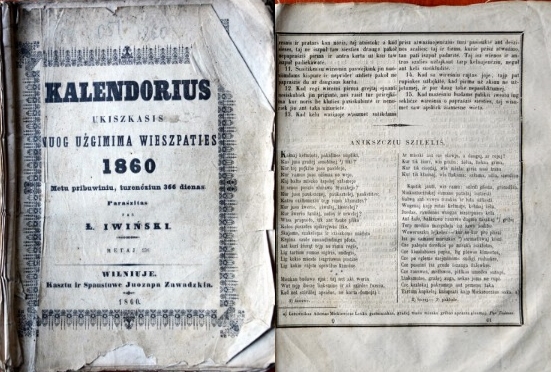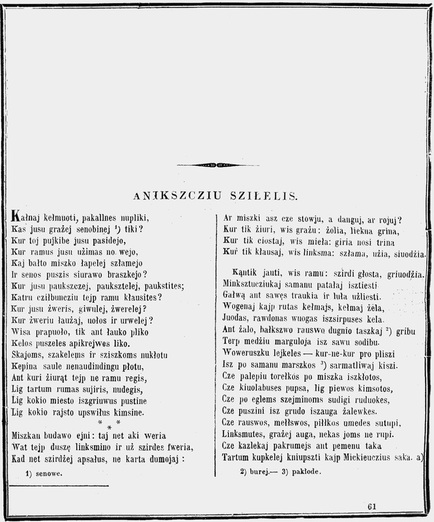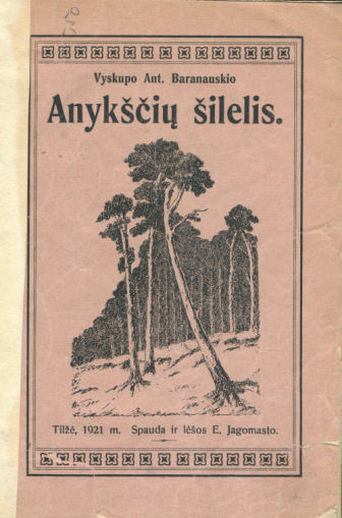Identity
|
„I think, my memory is too good. It would be better, if I did not have memory anymore. Then you could just lay me somewhere in a quiet solitude. I would lie like an immovable item and wait. This would be easier for all of us. But for now, my health declines, while the number of the years increases.” - Great-grandmother |
|
In 2014, I filmed my Great-grandmother, aged 102, reciting the great Lithuanian classical poem "The Forest of Anykščiai", written by Antanas Baranauskas in 1859. My great-grandmother was born and had lived in Anykščiai for the first third of her life. It is amazing that this old lady managed to keep in her mind such a long poem that she learnt in her young days. (Actually, this is only one poem out of 100 others that she knew by heart).
There are few layers in this short video. It is an intertextual artwork. The speaking great-grandmother herself is a long history of 100 years. She has survived two world wars and many other historical events of the 20th century. In my video she is reciting a poem written in the 19th century, which is about the history of the Lithuanian nation, national culture and values, and the past glory of the sacred forest of Anykščiai.
My great-grandmother is a guardian of a historical memory. She is like a voice speaking from the past, a symbolical figure of an oracle that represents the ancestors. The vulnerable voice is addressing oneself to the people living nowadays. Will the rushing people hear that? Is it still relevant to one who lives in the 21st century?
The poem was written at the time when Lithuania had been occupied by the Russian Empire. The romantic lament, full of archaic words and intonations is about the history of the derelict, extinct forest of Anykščiai. This story is full of references to the annihilation of the ancient religion and the fate of the country of Lithuania. The author of this poem, Antanas Baranauskas, was the first in Lithuanian literature to write about relations between the power of nature and the inner life of a human.
There are few layers in this short video. It is an intertextual artwork. The speaking great-grandmother herself is a long history of 100 years. She has survived two world wars and many other historical events of the 20th century. In my video she is reciting a poem written in the 19th century, which is about the history of the Lithuanian nation, national culture and values, and the past glory of the sacred forest of Anykščiai.
My great-grandmother is a guardian of a historical memory. She is like a voice speaking from the past, a symbolical figure of an oracle that represents the ancestors. The vulnerable voice is addressing oneself to the people living nowadays. Will the rushing people hear that? Is it still relevant to one who lives in the 21st century?
The poem was written at the time when Lithuania had been occupied by the Russian Empire. The romantic lament, full of archaic words and intonations is about the history of the derelict, extinct forest of Anykščiai. This story is full of references to the annihilation of the ancient religion and the fate of the country of Lithuania. The author of this poem, Antanas Baranauskas, was the first in Lithuanian literature to write about relations between the power of nature and the inner life of a human.
The poem was first published at the calendar for year 1860 .
